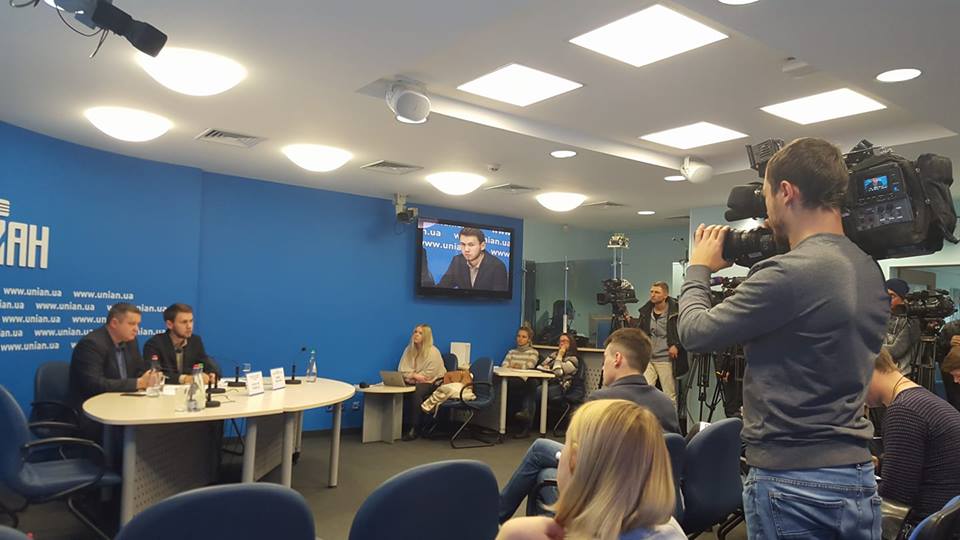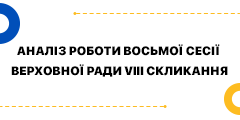Committee of Voters of Ukraine assesses the first local elections in the amalgamated territorial communities on October 29 as being largely in line with the standards of free and democratic elections.
The violations of current legislation in the overwhelming majority did not have a significant impact on the results of voting, but in some communities could distort the results of the will of the citizens. Also, on the eve of voting in certain settlements, were made attempts to indirectly and directly bribe voters, as well as criminal acts requiring appropriate interference by law enforcement agencies.

The e-day in the overwhelming majority of polling stations was in accordance with the norms of the current legislation. Most of the violations recorded by the observers of CVU were of a technical and procedural nature. Such violations include delay opening of polling stations, insufficient number of ballot boxes, opening of ballot boxes without inserting checklists, attempts to vote without a document certifying their identity. The traditionally high percentage of violations was regarding the facts of illegal campaigning both in the "day of silence" and on the day of voting. Also, on e-day there were separate cases of obstruction of the work of observers. For example, members of one of the polling station election commissions prevented the activities of CVU observer in Ivano-Frankivsk region. The reason was the actions of the observer of CVU, which pointed to the inadmissibility of voting without a document. Observers in Kyiv oblast (Fursivska ATC) faced difficulties in obtaining protocols for counting votes. Not enough money was allocated to print the corresponding forms, and therefore observers were forced to solve this problem by means of photocopies independently. In this case, failure to provide a copy of the election protocol to observers is considered as an administrative violation.
In a number of amalgamated communities there was a criminalization of the election process on election day. In particular, in Dnipropetrovsk region (Zaytsevsk ATC) unknown persons attacked a polling station in the village of Maiske, in Khmelnitschyna (Slobodsko-Kulchievetska ATC), threats to the ex-head of the TEC were recorded, and in the Kherson oblast (Belozerska ATC) there were beatings of activists because of an attempt to prevent voter lifting to the poling stations. Also, in Belozerska ATC, the presence of people in camouflage near the polling stations was recorded. At the same time, unreliable information about attempts of the said persons to commit illegal actions was disseminated. According to the CVU, members of the relevant groups were representatives of reputable in oblast associations of the ATO (anti terroristic operation) participants who were involved in the protection of polling stations. At the same time, such activities were carried out by them at previous local elections. In general, the Ministry of Internal Affairs should respond more promptly not only to formal violations of current legislation, but also to prevent possible offenses. In particular, to counteract the work of any groups whose external signs could testify to the preparation of organized violations in the elections. The CVU believes that a number of recorded unlawful actions indicate a low effectiveness of the Ministry of Internal Affairs in terms of prevention of electoral crimes.
In general, the CVU notes the low level of proficiency of members of electoral commissions as one of the key issues in elections on October 29th. As a result, a number of PSC decisions were taken with violation of the current legislation, which jeopardized the exercise of electoral rights of citizens. For example, at the Krasylivska ATC election commission members noticed that one of the registered candidates was absent in the ballot only in about 12 pm. The Commission decided to print ballots without stopping voting at the polling station. In this case, more than 70 bulletins that were in the boxes at the time of detection of the mistake were invalidated and, accordingly, the votes of some citizens were not taken into account.
One of the most common violations was the presence of errors in the text of the ballots. Some commissions corrected mistakes on the eve of e-day, others noticed them directly on election day.
As in the regular local elections in 2015, the typical violation was lifting citizens to the polling stations. In particular, such cases were recorded in Luhansk and Kherson oblast.
One of the negative tendency in the election was the technology of legal bribing of voters. It is a question of giving voters services or goods on a free basis or at reduced prices, the cost of which does not exceed the allowable by law (so called price of present) - 160 UAH.
In some ATCs, the use of malicious technologies was recorded, including the presence of so-called electoral clones and technical candidates in the lists. In particular, such cases are recorded in Luhansk, Vinnitsa and Kyiv oblast.
In the Luhansk oblast 30 candidates were registered in the elections of the Bilovodsk settlement head, 14 of whom lived outside the Bilovodsk district and were retired or unemployed.
Elections on October 29 took place under poor-quality legislation, which complicated the proper organization of the electoral process. First of all, it concerns elections in amalgamated communities in some regions. This issue remains unresolved, despite the fact that the Verkhovna Rada has made appropriate changes to the legislation. In particular, at the level of the law it is not regulated which local party branches have the right to nominate candidates to ATC. Legislative uncertainty has created contradictions in the work of election commissions, which have considered such cases in different ways. Also, the problem was the outdated norms of the law "On Local Elections", which require candidates to submit declarations in paper, not electronic form. CVU calls on the Verkhovna Rada to resolve these and other legislative gaps before the next first election in the amalgamated communities.
Special attention should be paid to the issue of nominating candidates from local branches of political parties. At present, the decision on the nomination of candidates for local elections is necessarily taken by the highest governing body of the party (usually the congress) and, given the large number of elections, this procedure greatly complicates the process of nomination. CVU supports the revision of the nomination mechanism and the simplification of the procedures.
See full version in Ukrainian

